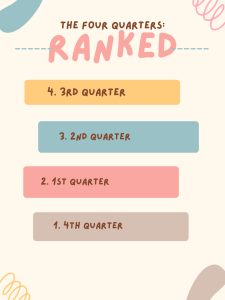The Flaw of New Years Resolutions
January 20, 2023
Most people enter the new year with a resolution that they wish to complete or practice within the year. A resolution is a promise to oneself that they will practice a certain habit or achieve a specific goal. Unfortunately, this strategy is almost guaranteed to fail in delivering individuals to their goals.
A survey done by Discover Happy Habits claims that only 9% of respondents feel that they have achieved their resolution by the end of the year. This percentage of success is astonishingly low considering the simplicity of the task. The reason for such a high rate of failure is because of the flawed psychology of a New Years Resolution.
By creating a goal at the beginning of the year and focusing on achieving that goal by the end of the year, one dooms themselves to an inevitable failure. The reason being is that this foresight sets a standard of perfection and ignores the importance of the present. By always thinking about the end goal, a minor failure in the present could make this goal appear unattainable. People want to achieve their resolution, but they do not focus on the smaller steps needed to achieve this goal and the consistency it will require.
Let us say that someone wants to run a marathon by the end of the year, so on the first day of the year, they go out and see how far they can run. An individual will likely find that it becomes incredibly difficult by around mile four, especially if one has a low level of physical fitness to begin with. This great initial effort will bring a very disappointing result when compared with the goal, and will likely cause the individual to become disheartened or even give up on the resolution altogether. What people do not realize is that after a couple weeks of running, they will see tremendous improvement when compared to their initial ability.
Instead of focusing on an incredibly difficult future goal, it is much more effective to think about the process it will take to become better in the related field. By setting a standard of constant improvement rather than perfection, the likelihood of success increases exponentially. The impact of working towards a goal provides much more benefit than the final achievement.
Another common resolution is to lose weight and reach a specific weight, the strategy used to achieve this goal is dieting and exercise. By working towards this desired weight, an individual would likely learn many beneficial skills such as: cooking, learning to control food intake, learning how to properly exercise, meal and schedule planning, and learning to track progress. Even if the person does not reach the weight by the end of the year, they have learned the process that it takes to achieve the goal and will arrive at the destination only in a matter of time.
Instead of using a specific day to set a specific goal, one should work everyday to become better than the day before. When faced with difficulty, those who set resolutions are more likely to fail than those who practice consistency. Though long term goals are important, people need to realize that they are only an added result of working hard over a period of time. So out with the New Year’s Resolutions, if you want to achieve something then start today and see how long you can keep it up. As Confucius once said, “The best time to plant a tree was 10 years ago, the second best time is now.”









